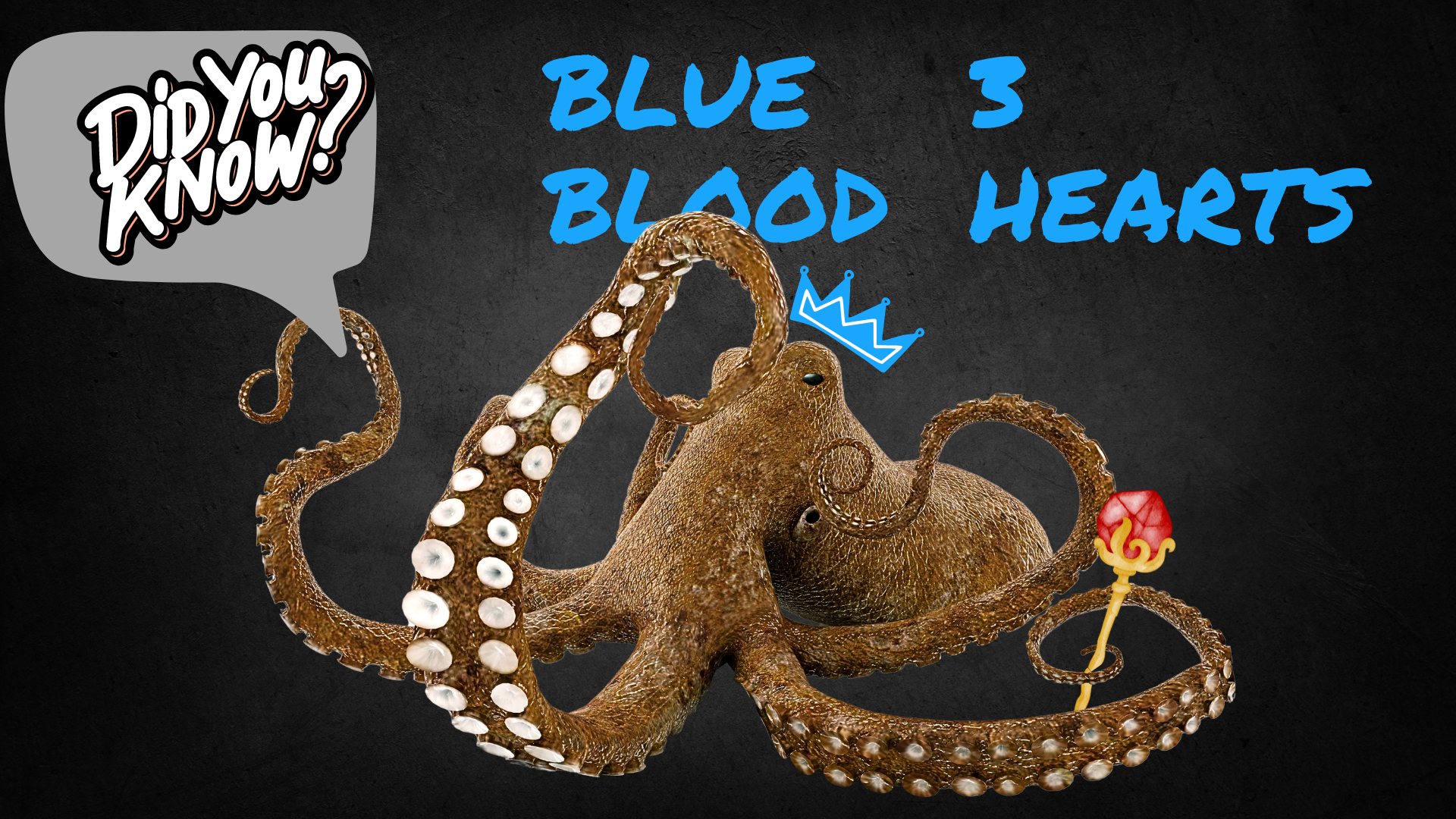
All images designed by me using Canva
What a wonder!
Every animal and mammal have one heart, and they have three! To top it up they have blue blood. Let's explore some more as we look at:
- Why they have three hearts and blue blood?
- Is it all octopuses that have this or some?
- Are octopuses actually healthy? (For my dear seafood lovers)

Why do octopuses have three hearts?
Octopuses as established, have three hearts simply because of the nature of their body and their unique circulatory system.
They need two of these hearts to pump blood to the gills where oxygen exchange occurs. So basically they need two to breath well.
The third heart, called the main heart, pumps oxygenated blood throughout the rest of the body. Basically to live, like the regular hearts you and I know, behave.
This heart structures we are looking at achieves high oxygen movement and blood movement.
Now to the second issue!

Why do octopuses have blue blood?
Let us start this explanation by looking at human blood. It is red, and that is because of hemoglobin which contains iron and gives it the red color when oxygenated.
In the case of octopuses, their blood appears blue due to the presence of the copper-based molecule hemocyanin. Hemocyanin binds to oxygen in the octopus's blood, hemocyanin contains copper, resulting in a blue coloration.
Is it all octopuses that have this or some?
Most octopus species have three hearts and blue blood. This circulatory system is a common characteristic of octopuses, squids, and cuttlefish who are all part of the cephalopod class of mammals. Therefore, it is not limited to a specific subset of octopus species but is a shared feature across the cephalopod class.

Is the blue blood edible and healthy, being part of the meat?
It is important to note that octopus blood, like any animal blood, may carry potential risks such as contamination or transmission of pathogens.
Therefore, if considering consuming octopus or any of its components, it is essential to ensure proper cooking and food safety practices are followed to minimize any potential health risks.
Most people do not consume octopus blood as part of their dishes, some cultures do consume certain parts of the octopus, including its flesh and eggs. Thus, there is limited information available regarding the health effects of consuming octopus blood.

I’m a medical doctor, though I think I have any veterinary doctor as a friend. I’m hearing this for the first time thanks for the knowledge.
Are you a medical doctor or a medical student?😂😂😂
Mmmm interesting
I’m in finals I treat patients everyday.
I’m a doctor 😂
🤣🤣🤣look at this man
You’re messing with me😂.
Keep having fun.
🤣🤣🤣
😂
Much welcome brother